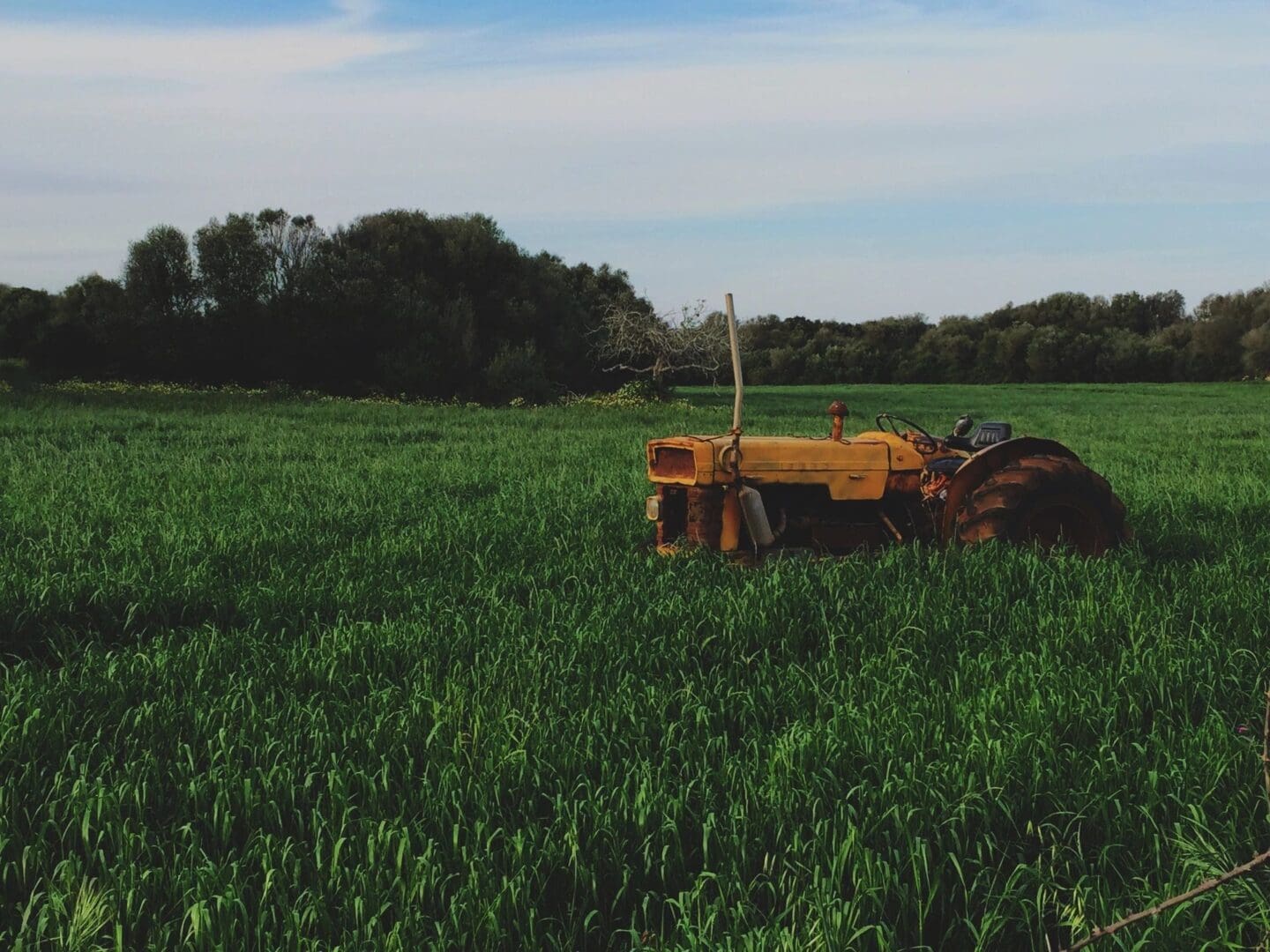Search Posts
Recent Posts
- Rose Island experts Sean O’Connor and Michael Simpson – G. Wayne Miller, Ocean State Stories June 11, 2025
- Time for Sour Grapes! – 6.11.25 – Tim Jones June 11, 2025
- Rhode Island Weather for June 11, 2025 – Jack Donnelly June 11, 2025
- What you should know about Social Security if your spouse passes away – Cheryl Tudino, SSA June 11, 2025
- It is what it is… 6.11.25 – Jen Brien June 11, 2025
Categories
Subscribe!
Thanks for subscribing! Please check your email for further instructions.

Meeting the challenges of an aging farm workforce, in a bipartisan way – Herb Weiss
By Herb Weiss, contributing writer on aging issues
About 16 months ago, the U.S. Senate Special Committee on Aging Ranking Member Mike Braun (R-IN) released a report titled Feeding the Future, sounding the alarm about the growing challenges older farmers face and urging Congress and the Biden administration to secure the future of American agriculture. Now, Senator Rick Scott (R-FL), the current chair of the Senate Aging Committee, is continuing this effort with the release of a new report addressing the same issue.
On March 31, Scott unveiled his eight-page report, America’s Aging Farm Workforce: Why Vanishing Family Farms Are a Growing Threat to U.S. Food Security and Rural Communities. The report notes that one-third of farmers and ranchers are over the age of 65, with a median age of 58—making agriculture the oldest workforce in the nation. “We’re seeing fewer young people follow in their parents’ footsteps,” Scott said, warning that this trend threatens America’s food security and the vitality of rural communities.
Zippy Duvall, President of the American Farm Bureau Federation, has also raised concerns. “As many farmers and ranchers reach retirement age, they face uncertainty over the future of their farms, which in many cases have been in the family for generations,” he said, pointing to high production costs, land competition, and declining profits as ongoing threats to sustainability.
“The data is clear—our farming population is aging rapidly, and without targeted action, we risk losing family farms and, with them, the backbone of rural America and our national food supply,” said Terry Kippley, President & CEO of the Council of Producers & Distributors of Agrotechnology (CPDA). Kippley pledged to work with Senator Scott to develop long-term solutions that support the next generation of farmers, reduce regulatory burdens, and ensure access to modern tools and technologies.
Troubling statistics
The Senate Aging Committee’s report outlines serious demographic challenges. Currently, aging farmers and ranchers control 40% of America’s farmland. Over the next two decades, approximately 350 million acres are expected to change hands, raising concerns about consolidation of family farms—particularly by foreign or adversarial entities.
At the same time, the number of farms is shrinking. The U.S. has lost 200,000 farms since 2007, and 40 million acres have been converted to non-agricultural use. While over 800 million acres of land are currently farmable, an annual loss of 1.9 million acres poses a significant threat to the country’s food production capacity.
Barriers like high operating costs, limited land access, and a lack of healthcare or retirement benefits discourage young people from entering the profession. Over 80% of farmers must work a second job just to stay financially stable. Buying or expanding farmland is also increasingly expensive – averaging $4,000 per acre, a 7.4% increase since 2022, according to the U.S. Department of Agriculture.
In addition, inflation and regulatory challenges are placing further economic strain on farmers. The Senate report recommends reducing these pressures through economic reforms, promoting innovation, simplifying regulations, and encouraging fair market competition to support American agriculture.
Policy suggestions include reducing inflation and energy costs, repealing the federal estate tax, investing in agricultural R&D (particularly in areas like organic farming and agri-tourism), and leveraging artificial intelligence for production and marketing. The report also urges Congress to strengthen protections against foreign land acquisitions and to pass legislation such as the Regulatory Decimation Act and the REINS Act to limit burdensome rules.
The report emphasizes that a new Farm Bill must genuinely support farmers and view food security as part of national security. To that end, it also calls for tariffs, when necessary, to counteract foreign subsidies that harm American producers.
Bipartisan push to attract a new generation of farmers
In the early days of the 119th Congress, on April 1, 2025, a group of bipartisan House lawmakers—Representatives Nikki Budzinski (D-IL), Zach Nunn (R-IA), Joe Courtney (D-CT), Don Davis (D-NC), Eric Sorenson (D-IL), Jill Tokuda (D-HI), and Gabe Vasquez (D-NM)—introduced the New Producer Economic Security Act (H.R. 2536). A companion bill (S.1237) was introduced in the Senate by Senator Tina Smith (D-MN).
H.R. 2536 was referred to the House Agriculture Subcommittee on General Farm Commodities, Risk Management, and Credit, while S.1237 was sent to the Senate Committee on Agriculture, Nutrition, and Forestry.
The proposed legislation would establish a pilot program within the Farm Service Agency (FSA) aimed at helping new and beginning farmers overcome the biggest barriers to entry: access to land, capital, and markets. The goal is to strengthen the farm workforce and secure the U.S. food system.
“If we’re going to revitalize American agriculture, we must ensure young farmers have the tools to succeed,” said Rep. Budzinski. “This bill addresses the biggest challenges they face—access to land, markets, and capital.”
“In Iowa, agriculture is our backbone,” added Rep. Nunn. “Young Americans who are willing to feed and fuel our country deserve every form of support we can offer.”
“The average producer in the U.S. is 58, and in Minnesota, it’s 57,” noted Sen. Smith. “Investing in the next generation of farmers is essential to food security and the economic strength of rural America.”
Jordan Treakle, Policy and Programs Director of the National Family Farm Coalition echoed these sentiments. “This bill supports new and beginning family farmers at a time when land consolidation is increasing. Keeping farmland in the hands of those who feed our communities is critical for a resilient food system,” he said.
A joint statement introducing the legislation emphasized that with nearly half of U.S. farmland expected to change ownership in the coming decades, this is a timely opportunity to create policies that ensure land stays accessible and productive.
Rhode Island
According to the 2024 Census of Agriculture, Rhode Island is home to 1,938 farmers and ranchers. Of these, 34% are age 65 or older, which amounts to approximately 659 individuals. Furthermore, about 90% of Rhode Island’s senior farmers do not have a younger farm operator (under age 45) working with them, raising concerns about farm succession. This issue is highlighted in the February 2016 report “Keeping Farmers on the Land,” issued by the American Farmland Trust. These concerning statistics should serve as a call to action for Rhode Island’s Congressional Delegation to address the issue by becoming cosponsors of the New Producer Economic Security Act.
Key provisions of the Bill
The House and Senate versions of the New Producer Economic Security Act would:
- Provide grants and cooperative agreements to state and tribal governments, non-profit organizations, community lenders, farmer cooperatives, and other eligible groups to improve access to land, capital, and markets.
- Offer funding for direct support services to help young farmers acquire land, pay closing costs and down payments, build infrastructure, and receive technical assistance and training.
- Prioritize projects that facilitate farmland transition from older to younger producers, include collaborative partnerships, or offer direct financial support to new producers.
- Establish a stakeholder advisory committee to help evaluate applications and ensure the program meets the real needs of farmers and ranchers.
Since becoming a permanent committee in 1977, the U.S. Senate Special Committee on Aging has consistently worked in a bipartisan manner, regardless of which party held the majority. In light of Chairman Scott’s report urging action on the aging farm workforce, he and Ranking Member Senator Kirsten Gillibrand (D-NY) should consider co-sponsoring S.2536—or working together to craft a bipartisan proposal to be introduced and referred to the Senate Committee on Agriculture, Nutrition, and Forestry, or the appropriate committee.
Now is the time for Democrats and Republicans to set aside political differences and come together to address the challenges posed by America’s aging farm workforce—and the serious threat this poses to our food security.
On January 15, 2025, during his opening statement at the first Senate Aging Committee hearing of the 119th Congress, Chairman Scott said: “I believe we have a significant opportunity in this Committee to work in a bipartisan manner to support and improve the lives of America’s current senior citizens and to create change that will enhance both the lifespan and health span of future generations.” This includes improving the lives of America’s older farmers and ranchers.
The New Producer Economic Security Act is endorsed by the National Young Farmers Coalition, Rural Advancement Foundation International-USA, American Farmland Trust, National Sustainable Agriculture Coalition, and Rural Coalition.
To download Chairman Scott’s report, America’s Aging Farm Workforce: Why Vanishing Family Farms Are a Growing Threat to U.S. Food Security and Rural Communities.” go to https://www.aging.senate.gov/imo/media/doc/2025_aging_farm_workforce_report.pdf.
To view, former Ranking Member Mike Braun (R-IN) report titled “Feeding the Future, go to https://www.aging.senate.gov/imo/media/doc/senate_aging_farmers_report.pdf
___
To read more articles by Herb Weiss, go to: https://rinewstoday.com/herb-weiss/

Herb Weiss, LRI ‘12, is a Pawtucket-based writer who has covered aging, healthcare, and medical issues for over 45 years. To purchase his books, Taking Charge: Collected Stories on Aging Boldly and its two sequels, visit herbweiss.com.
To purchase his books, Taking Charge: Collected Stories on Aging Boldly and two sequels, compiling weekly published articles, go to herbweiss.com – or purchase from Amazon.

.
